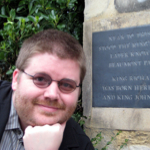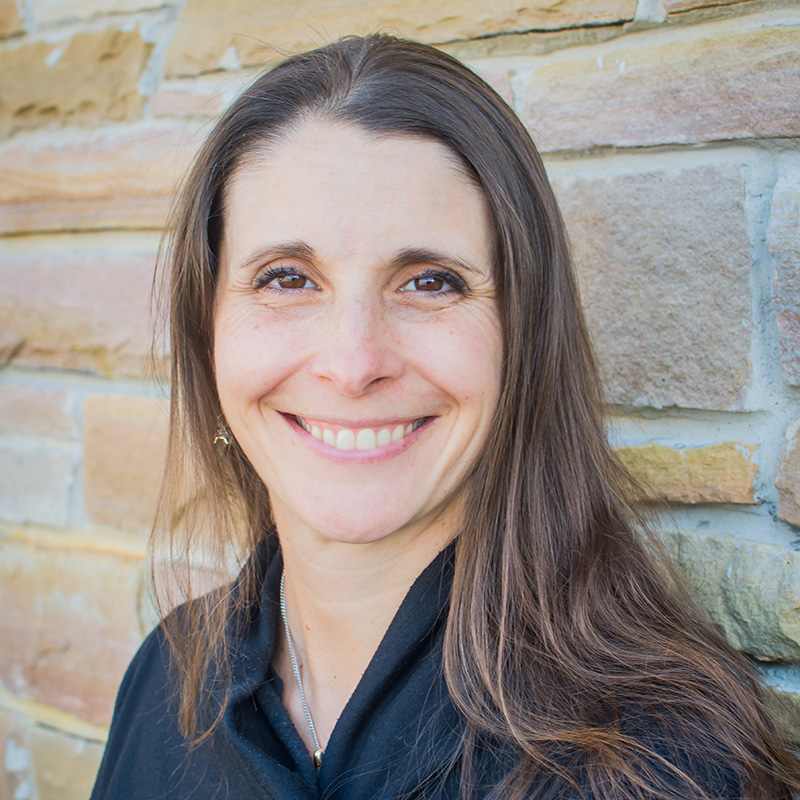Mr. Richard Barrett: Welcome back to A Sacrifice of Praise. Thank you for joining us. This is Richard Barrett, and my co-host is Amy Hogg. Today we have Part Three of our conversation with cantor and composer Chadi Karam. We’ve really enjoyed our conversation with Chadi over the course of this three-part interview, and today we talk with him a little bit more about some of the details of this situation in the Middle East in terms of chanting traditions: who the active figures are in Lebanon where he’s from, the situation with respect to relationships to other traditions in the Middle East, the role of women, and who a number of the active figures are in today’s scene, and the legacy of historic figures like Mitri el-Murr. So, without further ado, let’s continue with our conversation with Chadi Karam.
Mr. Barrett: What is the legacy of Mitri el-Murr like in Lebanon right now? Are his compositions still basically the core of the repertoire, or—?
Mr. Chadi Karam: Yes, it is. It is. And there are many composers now that are composing music that Mitri el-Murr never composed, especially for the feasts of the saints. Fr. Nicholas Malek is one of them. Joseph Yazbeck is a very active composer; he did a lot of adaptations from Greek to Arabic. There is the Monastery of Hamatoura with Fr. Jacob. I bet most of you have heard his voice and how powerful it is, and his Byzantine music knowledge is amazing, outstanding. He lived for a while at the Vatopedi Monastery, and he learned a lot. They are producing a lot of music for many saints. They are translating the services from Greek, metering them, and putting the music for— Who else? I think Fr. Romanos Gibran also has his music. And besides Mitri el-Murr, there’s a few hymns for Andrew Muaiqel that overtook Mitri el-Murr’s, and people use them all the time instead of Mitri’s. Among those are “Today is the day of resurrection,” “The great Moses,” “O heavenly King.” These are a big hit for Andrew Muaiqel in Lebanon, and all the chanters use them instead of Mitri el-Murr’s, just because they sound way nicer.
Ms. Amy Hogg: So also I’m wondering… In Greece, there is somewhat of a tradition of some four-part music. In America we definitely have that. In Lebanon, you don’t have that, right? It’s just all Byzantine chant.
Mr. Karam: No, it’s all Byzantine.
Ms. Hogg: That’s really interesting.
Mr. Karam: Yeah, in the Orthodox Church, only Byzantine is used. Of course, there are Catholics that use their own music, but for the Orthodox it’s only Byzantine. I’ve never heard any four-part harmony in church, although Mitri el-Murr wrote in one of his books several anaphora for four-part harmonies, in tone—I think—eight and in tone five. But we never use them, never. I’m not sure what’s the idea, what was the idea behind him writing those in Lebanon, but they are in his book.
Mr. Barrett: And the current patriarch even at one point produced a book of Byzantine music exercises, didn’t he?
Mr. Karam: Correct. That was a long time ago.
Mr. Barrett: Early ‘90s or something like that?
Mr. Karam: Yeah.
Mr. Barrett: I’ve seen a PDF of it. It was interesting.
Mr. Karam: Yeah, I used to have it. I think I left it in Lebanon. It was a very simple book for beginners, but it introduces the Byzantine music very nicely, in a nice, simple way. I think it had tapes with it for the different exercises. But it’s not a book that you would depend on to learn the theory of Byzantine music. There is a theory book that was produced by the Melkite Church in Lebanon; I think it was translated from the Greek. This one I think is the best theory book that we had in Arabic in the ‘80s, and people still use it until now.
Ms. Hogg: Now, the Melkites write the Arabic differently, don’t they, with Byzantine notation?
Mr. Karam: Yes, they still write it from right to left. They still write it and the words are still in the right direction as opposed to the Antiochian Orthodox: they break them down and flip the words and write it from left to right. Yeah, sometimes I try to read the Melkite compositions; sometimes they are confusing, to be honest. I’m not used to it. [Laughter]
Mr. Barrett: Sure. I’ve had some interactions with people from the patriarchate of Jerusalem who have come through parishes in Boston when I’ve been there, and what they say is that in the Jerusalem patriarchate, they use a different Arabic text than the Antiochian patriarchate, and they say that basically notated music hasn’t caught on there, that it’s still mostly an oral tradition for Jerusalem.
Mr. Karam: That is true when it comes to this, because the way they chant has nothing to do with Byzantine. I think it is like very local oral tradition, although… But when it comes to books—you mean music books or service books?
Mr. Barrett: Well, both. They use a different set of service books—
Mr. Karam: They don’t have music books.
Mr. Barrett: Okay.
Mr. Karam: I don’t think they have music books. The first Arabic music books came out from Lebanon by Mitri el-Murr. Beforehand there was no… But I was under the impression that all of our service books came from Jerusalem, and they were printed at one point in Jerusalem. They brought them to Lebanon; if anything, they either copied them or reprinted them. But even the stamp of the Jerusalem patriarchate is still on our service books that we use in Lebanon. I know these books have many mistakes, and we are hoping that our patriarchate would form a committee to look at these mistakes and rewrite all these books or reprint all these books.
But as far as I know, the same service books that are used in Jerusalem are used anywhere in the Arab world. But music-wise, what you said I think is correct, although I know that our chanter, the old chanter at St. George, came from Jordan, and he follows the Jerusalem patriarchate. Sometimes I know what he chants most of the time is very local and made up music or something, but I hear a lot of influence of Mitri el-Murr music in his chanting, especially “I shall open my mouth and it will be filled with the Spirit”: the way that he chants that is almost the same way we would chant it in Lebanon. But maybe in Jerusalem the situation is different, because I haven’t met anyone that lived there and came from there and chanted in our church, so I’m not sure. But from what I heard on Facebook, like some videos that I have seen on Facebook, yes, the chanting is different, to say the least.
Mr. Barrett: That’s interesting. That would be an interesting thing to try to chase down more about in the future. I’ll think about that. Hm.
Mr. Karam: Yeah, but I think it is mostly an oral tradition.
Ms. Hogg: So they do use one translation, and is it in Modern Standard Arabic?
Mr. Karam: Yes, it is not the spoken; it is the modern, because you may know that in Lebanon or in the Arab countries we use different dialects. Even in the same country, like in Lebanon, one could tell if somebody is living in the south or the north or in Beirut or… you know, in those villages in the mountain. They use different words, different accent, but when it comes to official written Arabic, all are the same.
Mr. Barrett: And Egypt has its own different dialect, right?
Mr. Karam: Yes, and sometimes they pronounce some of the letters differently. But we all understand what people are saying. There might be some words that are different, like Lebanon, Syrian, Jerusalem, Jordan, Egypt, but we understand what the point is, like the general topic of what people are talking about. Some words are different and definitely the accent is different, but we can still understand each other. But when it comes to services, everyone uses the same thing, exactly the same thing: the same book even.
Ms. Hogg: I’m curious. When you were in Lebanon, how much were women chanting, and has it—? Is it the same now or is it different?
Mr. Karam: Well, it depends on the parish. Whoever is available— Like in my parish, there were no women; in other parishes, only women were on the choir stand. In big— like the archdiocese choir, originally there was only men. And then for example in the choir of Tripoli, the Archdiocese of Tripoli, the choir was always a mix of men and women. In Mount Lebanon, men— There was a choir for women, but they never— we never chanted together, men and women together, just because of the pitch, the difference in pitch. So if we had a concert, they would chant separately unless there is a hymn that doesn’t go up so high. Sometimes Joseph Yazbeck wrote some four-part harmony hymns, like “Christ is risen” and stuff like that, so women would join just because of that. But you would never see the same choir chanting “Moses the Great” together, men and women together. At the parish level, it could be mixed: sometimes only men, sometimes only women. It depends.
Ms. Hogg: Sometimes both together, or no?
Mr. Karam: Sometimes both together.
Ms. Hogg: Okay, yeah. Interesting.
Mr. Karam: Here in Chicago, just because nobody uses music except for me [and] another chanter, we go by turn, chanting. There used to be one girl with us, but she left Chicago for medical school. She comes every now and then, and she chants on her own. We take turns; we never chanted together unless there is music like Doxastikon for the Praises that everyone knows, using the Byzantine music, of course. Otherwise we would chant separately, which I don’t like, but this is how it is.
Mr. Barrett: Things happen slowly sometimes.
Mr. Karam: Mm-hmm.
Mr. Barrett: I personally would love to end this episode at least with an excerpt of your recording. That would be lovely.
Mr. Karam: Sure.
[Anaphora for the Liturgy of St. Basil:] All creation rejoiceth in thee, O thou who art full of grace: the angelic hosts and the race of men. O hallowed Temple and supersensual Paradise, glory of Virgins, of whom God was incarnate and became a little Child, even our God who is before all the ages; for He made thy womb a throne, and thy body more spacious than the heavens. All creation rejoiceth in thee, O thou who art full of grace: glory to thee.
***
Mr. Barrett: Well, thank you so much, Chadi. It’s been great talking to you, and we look forward to hearing more from you as you keep going.
Mr. Karam: Thank you!
Ms. Hogg: I enjoy chanting your compositions, and it was great to get to talk to you more.
Mr. Karam: Thank you so much. And if you have any feedback for any of the compositions, please don’t hesitate. I am open to everything.
Mr. Barrett: Thank you as always to our producer, Fr. David Hyatt, for putting this all together, and thank you for listening to us.

 Richard Barrett
Richard Barrett
 Amy Hogg
Amy Hogg